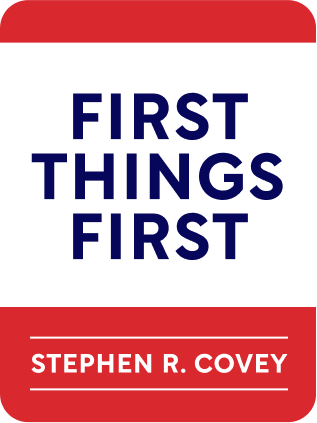

This article is an excerpt from the Shortform book guide to "First Things First" by Stephen R. Covey. Shortform has the world's best summaries and analyses of books you should be reading.
Like this article? Sign up for a free trial here .
Do you tend to rely on quick fixes when faced with a problem? Or do you try to root out the core, underlying issue?
There’s little argument that we live in a quick-fix society focused on attaining immediate results at the expense of future losses. We’d rather take a pill to avoid the pain now than put efforts towards identifying and rooting out its underlying cause. While quick-fix solutions are alluring and convenient, they don’t solve the underlying problem. Further, they often exacerbate it in the long term.
Keep reading to learn about the dangers of relying on quick fixes.
There Are No Quick Fixes
We all like to believe in quick fixes, but if you want to make a substantial change in your life—even in one area of your life—you need to address the root cause of the issue, and this always comes back to your principles. Your principles govern your behavior, and if your behavior is creating an undesirable result, the only way to change it in the long term is to shift to an importance paradigm and focus on true north principles such as integrity and patience. This isn’t a quick process.
The well-being of your physical needs—which include your body as well as your finances—depends on healthy habits that you maintain over time. This requires the principles of self-discipline and thrift. To keep your body healthy, you must exercise, eat well, get enough sleep, and try to avoid stress; attempting to shortcut this process with quick-fix diets, energy drinks, and makeup won’t actually benefit your health. Similarly, your financial health is determined by your ability to save and manage your money well, not by jumping on get-rich-quick schemes or praying for a winning lottery ticket.
Developing deep, intimate relationships to fulfill your social need takes time, effort, and the principle of trust. Trust, in particular, takes time to develop through positive interactions, kept promises, and displays of love and caring. If you try to shortcut your social needs with purely sexual relationships or by using your money or position to gain affection, you won’t feel truly fulfilled and satisfied.
Satisfying your mental needs is a process of continual growth and learning; it doesn’t stop when you finish school. However, many people take the short-term view of learning in school in order to get high grades, to get into college, and ultimately to get a good-paying job. But even if you follow that progression and reach your goal, how satisfied do you expect to be working at a job where you don’t feel that you’re challenging or expanding your mind?
True spiritual satisfaction involves finding a higher meaning and purpose and helping others. This requires the principles of reciprocity and service. What our quick-fix society tends to promote is achieving spiritual fulfillment through self-focused efforts, like raising your self-esteem and working on self-improvement. Although these are valuable practices, you won’t feel a greater sense of purpose if your effort doesn’t reach beyond yourself.

———End of Preview———
Like what you just read? Read the rest of the world's best book summary and analysis of Stephen R. Covey's "First Things First" at Shortform .
Here's what you'll find in our full First Things First summary :
- How to work effectively, not just efficiently
- Why you need to think more about what you're spending time on than how much time you're spending
- The 6 steps to effectively schedule and prioritize important activities






